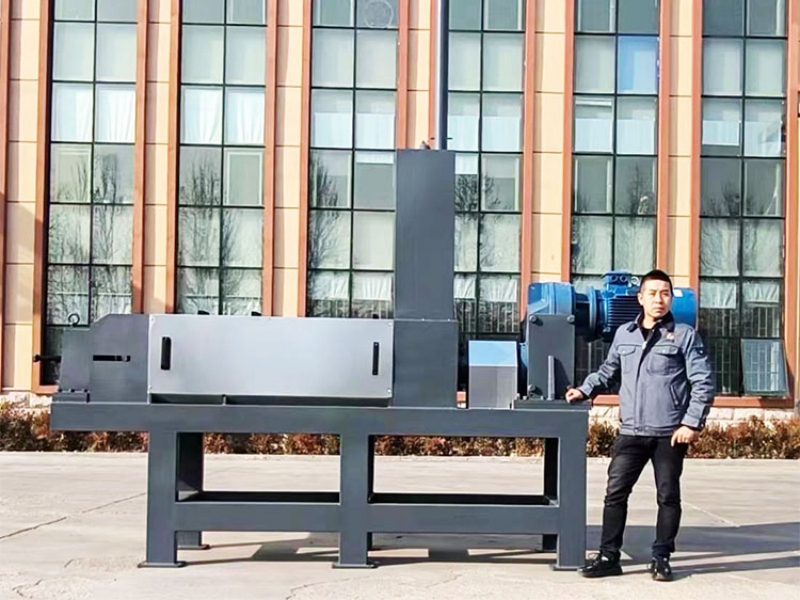Company news
Efficient Cow Dung Dewatering Machines: Revolutionizing Agricultural Waste Management

Introduction:
In the realm of sustainable agriculture and waste management, cow dung dewatering machines have emerged as valuable tools for farmers. These machines play a crucial role in processing cow dung, a byproduct of livestock farming, and converting it into a valuable resource. This article explores the significance of cow dung dewatering machines and how they contribute to both environmental sustainability and economic benefits for farmers.
Section 1: The Problem of Untreated Cow Dung
Livestock farming, particularly cattle rearing, generates a substantial amount of cow dung. When left untreated, cow dung poses environmental challenges, including the release of harmful greenhouse gases and the contamination of water sources. Additionally, the improper disposal of cow dung can lead to unhygienic conditions in rural areas, impacting the health and well-being of communities.
Section 2: Understanding Cow Dung Dewatering Machines
Cow dung dewatering machines are innovative devices designed to separate the solid and liquid components of cow dung efficiently. These machines utilize mechanical processes such as screw pressing or centrifugation to reduce the moisture content in the dung, resulting in a solid residue and a liquid fraction. The solid residue can be further processed into organic fertilizer, while the liquid fraction can be used for biogas production or as a nutrient-rich liquid fertilizer.
Section 3: Environmental Benefits
The implementation of cow dung dewatering machines brings about several environmental benefits. By reducing the moisture content in cow dung, these machines help mitigate the release of methane, a potent greenhouse gas emitted during the decomposition of organic waste. The solid residue, when converted into organic fertilizer, promotes sustainable agriculture practices by enriching the soil with essential nutrients.
Section 4: Economic Opportunities for Farmers
Farmers stand to gain economically from the adoption of cow dung dewatering machines. The solid residue obtained from the dewatering process can be sold as organic fertilizer, providing an additional source of income. Moreover, the liquid fraction, rich in nutrients, can be used on the farm to enhance crop yields, reducing the dependency on chemical fertilizers. The biogas produced from the liquid fraction can be utilized for on-farm energy needs or sold to the grid.
Section 5: Adoption and Challenges
While the benefits of cow dung dewatering machines are evident, their widespread adoption faces challenges such as initial investment costs and the need for technical know-how. Governments and agricultural organizations can play a pivotal role in promoting the adoption of these machines through subsidies, training programs, and awareness campaigns.
Conclusion:
Cow dung dewatering machines present a promising solution to the environmental and economic challenges associated with untreated cow dung. As the agriculture sector continues to evolve towards sustainability, the adoption of these machines can contribute significantly to waste management, soil health, and the overall well-being of farming communities. Through collaborative efforts and support, the integration of cow dung dewatering machines can pave the way for a more sustainable and prosperous agricultural future.
Recommend
- Enhancing Sustainability: The Role of Residue Dewatering Machines2024-01-25
- Transforming Agriculture: The Role of Animal Manure Dewatering Machines2024-01-24
- The Revolutionary Cannabis Dehydrator: A Game-Changer in Drying Techniques2024-01-24
- Revolutionizing Cannabis Processing: The Role of Cannabis Dehydration Machines2024-01-23
- The Benefits of Using Hemp Alcohol Residue Screw Press Machine2024-01-22
NEWS
NEWS
Contact us
QQ:1272370381
Mob:+86 13053656336
TEL:+86 15684339888
Email:chuantaiscrewpress@gmail.com
ADD:Weifang City, Shandong Province,China
